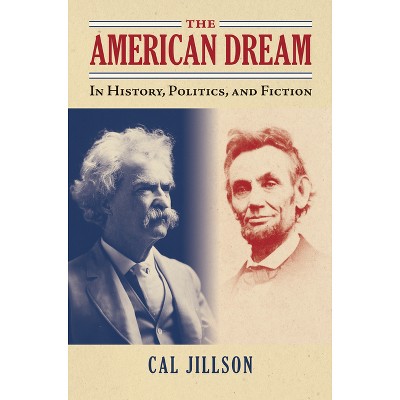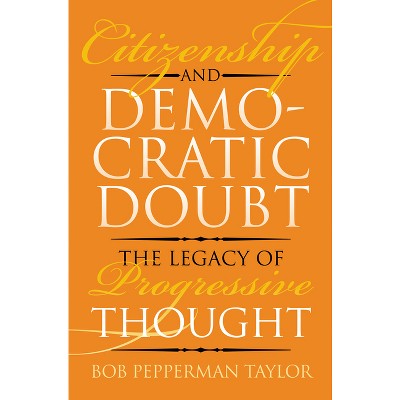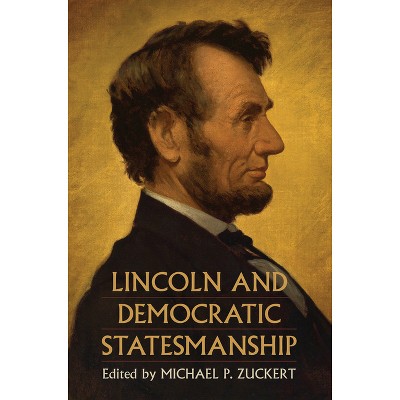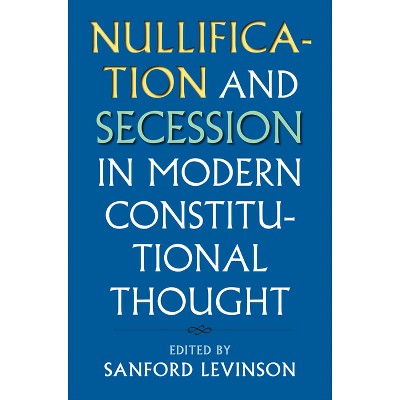Sponsored

Democratic Beginnings - by Amy Bridges (Paperback)
In Stock
Sponsored
About this item
Highlights
- State constitutions are blueprints for government institutions, declarations of collective identity, statements of principle, values, and goals.
- Author(s): Amy Bridges
- 216 Pages
- Political Science, Constitutions
Description
About the Book
The history of the creation and revision of Western state constitutions from the antebellum period to the Progressive Era.Book Synopsis
State constitutions are blueprints for government institutions, declarations of collective identity, statements of principle, values, and goals. It naturally follows, and this book demonstrates, that the founding documents and the conventions that produced them reflect the emerging dynamics of American democracy in the nineteenth century. Nowhere is this more clear, Amy Bridges tells us in Democratic Beginnings, than in the American West. A close study of the constitutional conventions that founded eleven Western states, and of the constitutions they wrote, Democratic Beginnings traces the arc of Western development. Spanning the sixty years from California's constitution of 1850 to those of Arizona and New Mexico in 1910--and including Colorado, Idaho, Montana, Nevada, and Wyoming--Bridges shows how delegates to these states' constitutional conventions, pragmatically and creatively devised law and policy for the unprecedented challenges they faced. Far from the "island communities" of conventional 19th-century American history, these delegates, and the territories they represented, were thoroughly engaged in the central issues of their times, at the local, regional, and national levels--mining and agriculture, labor law and corporate responsibilities, water rights and government obligations, education and judicial practice. Theirs was not the Founders' constitutional convention. With very different tasks, delegates more representative of the population, and the experience of living in a democratic republic that their forebears lacked, the Western delegates found unparalleled opportunities at the conventions for popular input into law and public policy. What they did with these opportunities, and how these in turn shaped the emerging American West, is the story Democratic Beginnings tells.Review Quotes
"Democratic Beginnings is a remarkable synthesis of 12 state conventions and a much larger number of political controversies into a highly revealing account of how the western states came to be. an important work that opens up many new lines of inquiry in the historical study of American state politics and constitutionalism."--Political Science Quarterly
"Innovative and highly engaging. The explication of the [western] state constitutional convention delegates' diligence and statesmanship is of great importance to future studies of federalism and American political development. Highly recommended."--Choice
"Amy Bridges's account of deliberations in western state constitutional conventions enriches our understanding of constitutionalism and American political development. Democratic Beginnings shows that late-nineteenth and early-twentieth century founders of western constitutions not only approached their task in a different fashion than framers of the federal constitution but also differed from earlier generations of state constitution-makers, on account of the distinct problems of governance they encountered and their readiness to adopt innovative provisions in response to these challenges."--John Dinan, author of Keeping the People's Liberties: Legislators, Citizens, and Judges as Guardians of Rights
"A landmark achievement. We have only begun to scratch the surface of understanding the constitutional experience of the American states, and this book takes a giant step forward with its exploration of the distinctive politics surrounding the constitutional conventions of the western states. As Bridges demonstrates, state constitutional politics is but a special case of state politics generally. Constitution-writing was an essential part of the process of state-building in the American West, and those events have too long been hidden in the shadows. This book finally brings them to light, and in doing so helps illuminate American political development broadly."--Keith Whittington, Department of Politics at Princeton University
Shipping details
Return details
Frequently bought together

Trending Non-Fiction
















